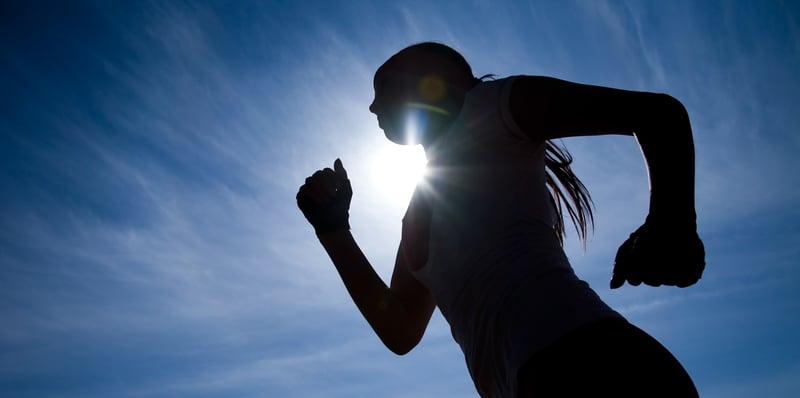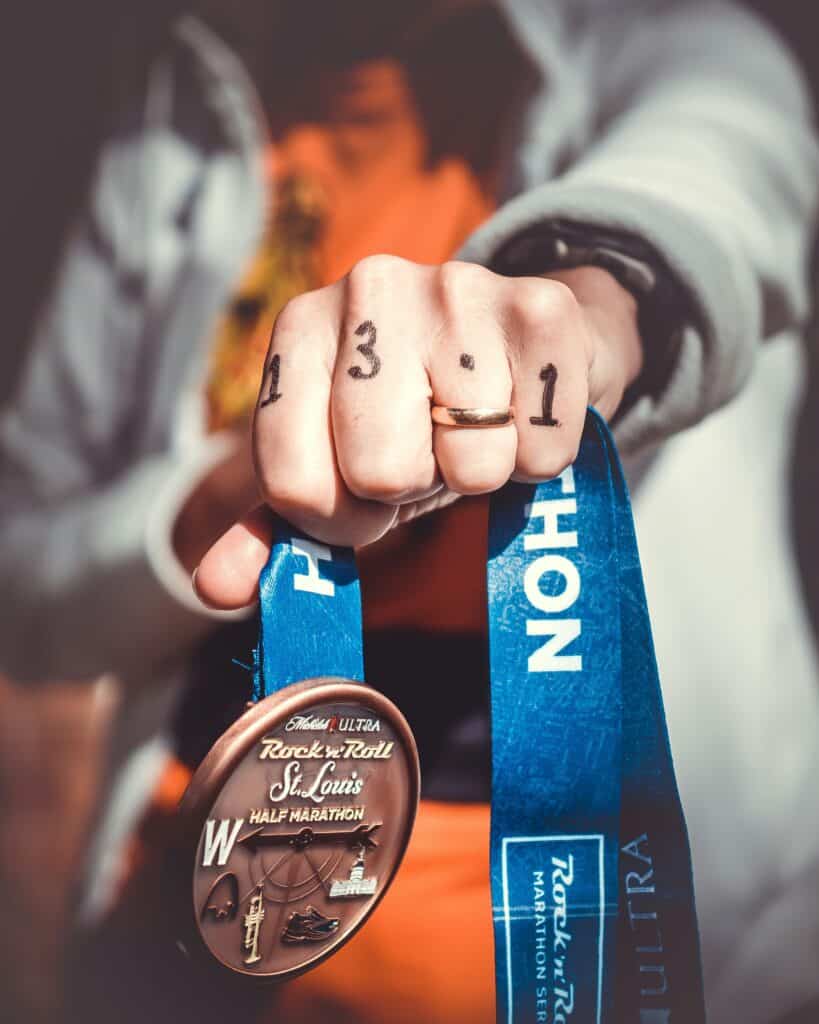
I haven’t been a runner my entire life. In fact, I haven’t even been a runner my entire adult life. I started in late college as a way to separate myself from classes, school, and everything else.
Like any athlete, I’ve had the highest highs including setting PRs, running new distances, meeting best friends, and even meeting my husband. I’ve also had the lowest lows like running personal worsts, burnout, and injury.
Each component comes with the sport, and it’s hard to find many runners that haven’t had the bad with the good.
When I first started running, I thought you needed to run everything fast to get faster. I thought you had to run a lot, and love it all of the time. I pictured runners having Beach Boy music playing in the background and appear happy like every stock image “runner” photo. Now I know, that isn’t true at all.
Here’s seven things I wish I’d known seven years ago:
1) Not every race is going to be a Personal Record (PR)
If you race a lot (like me), then not every race will be a PR. Multiple factors go into running a personal best such as weather, nutrition, and training. If you expect every race to be a PR, you will set yourself up for failure. Some of my favorite races have not been PRs and that okay.
2) The right running shoes matter
Working in a running specialty store, I am biased about this topic, but it’s important to get the right shoes for you. It doesn’t have to be the most expensive or your best friend’s favorite, the critical component is that the shoe works and supports your gait and feet.
My number one advice for any new runner is to go get fit at a local running store. They will tell you what works the best for your feet. Many local stores allow you to try a shoe for a couple of weeks to make sure it truly is the best for your feet.
3) You can’t run fast all of the time
Fast is relative, and there is no perfect definition of fast, but you can’t run fast or hard for your ability 100% of the time. This is a lesson I’ve learned the hard way.
The second year I was running seriously: I ran all of my runs hard. I ran for 1 hour, pushing the same “too fast for me” pace every day.
Do you know what I gave myself? A tibial stress fracture on my 21st birthday. Most professional runners follow the 80% easy, 20% hard rule for running. You’ll get faster by running easier.
4) Rest days are as important as training
In the world of social media, it seems like everyone runs hard all of the time. It’s important to rest and recover after hard runs. If you don’t, your body will get injured. Days off can save training cycles and seasons.
5) Success in this sport takes patience
Believe me, patience is not a virtue I was blessed with, but running success takes time and patience. There is no secret (legal) speed sauce, and consistency and hard work is the best way to see results.
6) Nothing’s bigger than the little things
The little things can take more time than actually running. Little things include icing, getting enough sleep, proper nutrition, stretching, core/strength work, and resting when appropriate. The little things are the 10% that brings you that much closer to a personal best and help you stay injury free.
7) Your interests will change — and that’s okay
This can be applied to almost everything in life! So maybe you started to train for a 5k, then half marathon, then a full marathon, and then you decided you don’t want to race at all. It doesn’t matter! Train for what makes you happy and forget about the rest.
If running marathons makes you happy, go for it!
If training to eat donuts makes you happy, then go for it.
You’re a “real” runner if you say you are
People commonly ask: How do I know I am a real runner? Or they even declare “I’m not a real runner.” If you believe you’re a real runner, then you are, it’s as simple as that. There is no definition of real running. Running is an inclusive club filled with people all of all walks of life, that’s what makes it such a beautiful sport!
Hollie Sick is an avid runner who’s completed more than 30 half marathons. Read her blog, or follow her on Facebook.





